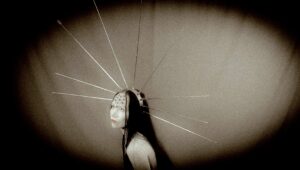The Third Branch of the Mabinogi
Two men return from a war, but even in peace time they are not left in peace. How does a family survive when the circumstances of their lives change suddenly and without warning? Manawydan knows the value of forbearance, but only manages to put everything right when his patience finally runs out. What is the significance of the mouse? How does the past affect the present? Guto Dafis delivers this ancient Welsh tale of enchantment with a sense of immediacy and awareness of the relevance of its themes for today – themes of repeated cycles of exile and return, of losses and separations followed by eventual restitution and reunion.
Bio
Storyteller Guto Dafis from Cardiff engages and captivates his audiences with the energy of his performances, his warmth, his humanity and his wry humour. He is also a musician; he punctuates and enlivens his storytelling performances with snatches of melody, and he has a musician’s sense of pace and dynamics in his delivery of a tale.
He has performed many times at the Beyond the Border International Storytelling Festival, as well appearing at other festivals in Wales and England. He has often been called upon to entertain visitors at castles and historic sites all over South Wales, and has also delighted audiences as far afield as Brittany, the UAE, Netherlands and Italy.
“a gifted teller … with a relaxed and easy style that is guaranteed to draw you in” (Carl Gough, Swansea Storytelling)
don’t worry if you miss it – we will send you a recording valid for two weeks the next day

